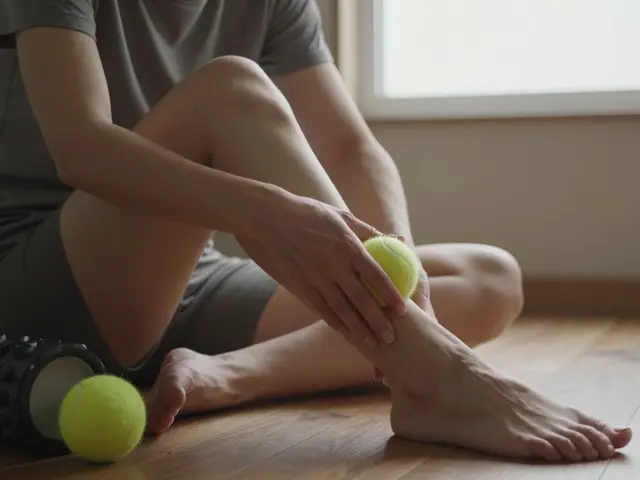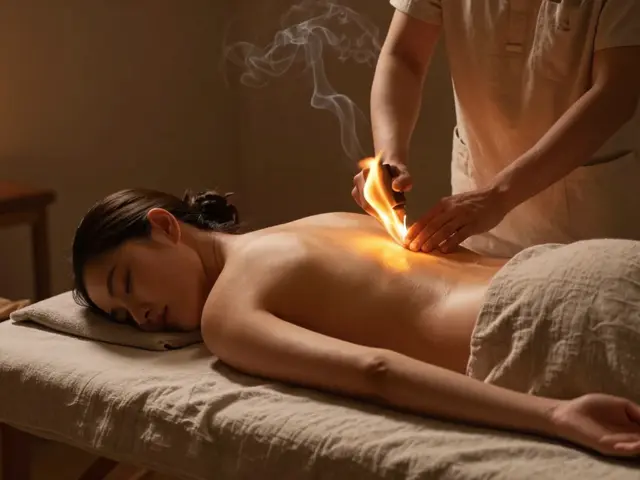Pregnancy is both an exciting and challenging time. Many women find themselves dealing with a host of new aches, pains, and emotional shifts. While every pregnancy is uniquely beautiful, expectant mothers often seek ways to ease discomfort and find relaxation. This is where prenatal massage steps in as a valuable resource.
Unlike regular massages, prenatal massage is tailored to meet the specific needs of pregnant women. From easing back pain to reducing swelling, prenatal massage offers a range of benefits that help mothers-to-be feel their best as they prepare to welcome their new baby into the world.
The focus is on providing a nurturing touch that not only relieves physical discomfort but also supports emotional well-being. It’s common for pregnant women to experience stress and anxiety. A good prenatal massage can offer much-needed solace, making the journey of pregnancy a little smoother.
- What is Prenatal Massage?
- Benefits of Prenatal Massage
- Safety and Techniques
- Finding the Right Therapist
- Tips for a Great Prenatal Massage Experience
What is Prenatal Massage?
Prenatal massage is a specialized form of therapeutic bodywork tailored to the changing needs of expectant mothers. It’s not simply about making the mom-to-be feel good, but also about addressing specific conditions associated with pregnancy. This type of massage focuses on areas of the body that are prone to tension and discomfort during pregnancy, such as the back, legs, and feet.
As the baby grows, the mother’s body undergoes significant changes. Hormonal shifts, weight gain, and changes in posture can contribute to discomfort and pain. Prenatal massage aims to alleviate some of these issues by using techniques that are safe and effective during pregnancy. It involves gentle and nurturing movements that are designed to relieve muscle tension, improve circulation, and reduce stress levels.
The massage therapist, often trained in prenatal techniques, may use different positions to ensure the mother's comfort and safety. These could include lying on the side or using special cushions to support the body. Some therapists also use aromatherapy oils that are safe for pregnancy to enhance relaxation. Massage during pregnancy not only benefits the mother's physical health but also helps to improve mental well-being by reducing anxiety and promoting better sleep.
Many scientific studies support the benefits of prenatal massage. According to the American Pregnancy Association, this type of massage can reduce symptoms of depression, anxiety, muscle pain, and joint discomfort during pregnancy. It's also said to improve labor outcomes and newborn health. A study published in the journal of Psychosomatic Obstetrics and Gynecology found that pregnant women who received regular prenatal massages had lower levels of cortisol, the stress hormone, and higher levels of serotonin and dopamine, which are mood-stabilizing hormones.
“Prenatal massage can be a wonderful addition to your prenatal care routine. It not only provides physical relief but also a sense of emotional well-being,” says Dr. Mary Smith, a renowned obstetrician.
Pregnancy Care becomes easier with the right support systems in place, and prenatal massage undoubtedly plays a significant role. Besides easing physical discomfort, it prepares the body for the demands of labor. The relaxation and stress relief offered by massage are immense, contributing positively to both the mother and baby’s overall health.
Benefits of Prenatal Massage
Pregnancy brings both joy and discomfort. One of the most cherished pathways to ease pregnancy-related discomforts is prenatal massage. This specialized type of massage therapy focuses on the needs of expecting mothers, offering a host of benefits that can make the pregnancy journey more comfortable and enjoyable.
Firstly, prenatal massage has been shown to reduce anxiety and stress. Pregnancy often comes with emotional highs and lows. A calming massage helps lower cortisol levels, which are associated with stress. When cortisol levels decrease, it paves the way for an increase in serotonin and dopamine levels, both of which are mood-enhancing hormones. This hormonal balance not only helps the mother but also positively affects the baby.
Another significant benefit is the relief it provides from muscle and joint pain. Pregnancy can put a lot of pressure on the lower back, hips, and legs. A skilled massage therapist can work on alleviating this pressure by focusing on these problem areas. The massage also increases blood circulation, which helps to reduce swelling in the hands and feet—a common issue during pregnancy.
Prenatal massage is also beneficial for reducing sciatic nerve pain. As the baby grows, the uterus puts more pressure on a mother's lower back and pelvic floor, often leading to sciatica. Massaging the irritated areas can alleviate this pain, providing much-needed relief.
Moreover, improved blood and lymph circulation helps to reduce fluid retention and bring more oxygen and nutrients to the cells of both the mother and the baby. This contributes to overall better health and energy levels. Regular sessions can even help improve sleep, which is often disrupted during pregnancy due to discomfort and frequent bathroom visits.
According to the American Pregnancy Association, "Massage therapy during pregnancy is a wonderful complementary choice for prenatal care. It is a healthy way to reduce stress and promote overall wellness."
Another notable benefit is the reduction of edema and swelling. Many expectant mothers experience swelling around their ankles and feet, especially during the later stages of pregnancy. Prenatal massage can stimulate soft tissues to reduce the collection of body fluids, thereby easing swelling.
The emotional benefits should not be overlooked. Feeling nurtured and cared for through touch is a profound way to connect with one's changing body. It offers a sanctuary to breathe, relax, and recharge, fostering a positive mental state during a transformative time.
Lastly, prenatal massage can improve labor outcomes. When done regularly, it can help prepare the body for childbirth by relaxing muscles and enhancing flexibility. Some studies suggest that women who receive regular prenatal massages may have shorter labor times and fewer complications.

Safety and Techniques
When it comes to prenatal massage, safety is the top priority. Expectant mothers need reassurance that their health and the health of their baby are in good hands. Fortunately, trained prenatal massage therapists are well-versed in the proper techniques to provide safe and effective relief. One of the key principles is avoiding deep tissue work that can be too intense for a pregnant body. Instead, therapists use a gentle and nurturing touch, focusing on areas commonly troubled during pregnancy like the lower back, hips, and legs.
Massage therapists often utilize special cushions and bolsters to ensure comfort and proper body alignment. For example, side-lying positions with pillow support are frequently used during sessions to alleviate pressure on the abdomen. It's crucial to avoid lying flat on the back for extended periods, particularly in the later stages of pregnancy, as this can compress blood vessels and hinder circulation. By using these tailored techniques, therapists can successfully address the unique needs of pregnant women.
Essential safety measures include thorough consultations before the massage. Therapists need to be made aware of any complications or high-risk factors related to the pregnancy. If a woman experiences conditions like preeclampsia, heavy bleeding, or placental abruption, massage may not be recommended. Open communication ensures that any concerns are promptly addressed, fostering a safe environment for both mother and child.
One respected voice in the field of prenatal massage is Carole Osborne, a seasoned massage therapist and author of 'Pre- and Perinatal Massage Therapy: A Comprehensive Guide'. She emphasizes the significance of proper training and empathy in providing excellent care.
"Competent prenatal massage therapy requires an understanding of the physiological changes in pregnancy and a compassionate approach to those changes," Osborne notes.Her insights underscore the crucial role of well-informed and considerate practitioners.
Techniques used in prenatal massage include Swedish massage, which is known for its gentle and relaxing strokes. By improving circulation and reducing muscle tension, Swedish massage offers a safe option for expectant mothers. Lymphatic drainage techniques are also employed to help reduce swelling, a common issue during pregnancy. By encouraging fluid movement through lymphatic channels, these methods can provide significant relief for swollen ankles and legs.
For those seeking a deeper connection, some therapists incorporate elements of reflexology in their sessions. By applying pressure to specific points on the feet, reflexology is believed to benefit other organs and systems in the body. Though more research is needed to firmly establish its effectiveness, many women find it a comforting addition to their prenatal care routine.
Ultimately, prenatal massage is about blending physical comfort with emotional support. By following safety guidelines and employing appropriate techniques, trained therapists can offer a profoundly soothing experience for expectant mothers. If you're pregnant and considering a massage, make sure to consult your healthcare provider first and seek out a qualified prenatal massage therapist. This way, you can enjoy the benefits with peace of mind, knowing you and your baby are in safe hands.
Finding the Right Therapist
When you're expecting, finding the right therapist for your prenatal massage is vital to ensure both your safety and comfort. Not all massage therapists are trained in the specific needs of pregnant women, so it's important to do some research and ask the right questions. Begin by looking for therapists who are certified and have specialized training in prenatal massage. Certification ensures that they understand the specific techniques and safety measures required for expectant mothers. These professionals are trained to know what to avoid and how to position your body comfortably during the session.
Start by gathering recommendations from friends, family, or your healthcare provider. Personal experiences can give you a good idea of what to expect. You can then follow up by reading reviews online. Websites like Yelp or Google Reviews can offer insights into the experiences of other pregnant women with particular therapists. Pay close attention to feedback regarding their expertise in handling pregnancy-related discomforts like back pain and swelling.
Once you have a list of potential therapists, it's time to ask some key questions. Find out how long they've been practicing and how many prenatal massages they perform each week. Experience counts significantly because the more experienced they are, the more likely they understand the nuances involved. Discuss any health concerns you might have, and ensure they are comfortable working with them. It's also essential to inquire about their knowledge of different massage techniques suited for pregnancy. Some therapists are skilled in Swedish massage, which is considered safe and beneficial for pregnant women.
Don't hesitate to schedule a consultation with the therapist before booking a massage. This initial meeting can help you gauge their professionalism and comfort level with your pregnancy needs. During this consultation, ask about the type of equipment they use. For instance, some therapists use specially designed pregnancy massage tables that allow for comfortable positioning, while others might use pillows and bolsters to support your body. Make sure they are equipped with whatever tools you find most comfortable.
Price can also be a decisive factor. While it’s tempting to go for the cheapest option, remember that you often get what you pay for. A certified therapist with years of experience might charge more, but the investment in your well-being is worth it. Check if they offer packages or discounts for multiple sessions, which can make their services more affordable over the long term. Comfort levels vary from person to person, so always trust your instincts when making a decision.
Location is another aspect to consider. Pregnancy can be exhausting, and you don't want a long commute to add to your discomfort. Look for therapists close to your home or work to make the process as easy as possible. Some therapists even offer home visits, which can be a convenient option if mobility becomes an issue later in your pregnancy. Lastly, check if your health insurance covers prenatal massage. Some plans include coverage for therapeutic massages, which can alleviate some of the costs involved.
According to the American Pregnancy Association, prenatal massage can alleviate many normal discomforts experienced during pregnancy, such as backaches, stiff neck, leg cramps, headaches, and swelling.
Ultimately, finding the right prenatal massage therapist requires a bit of research and effort but can significantly enhance your pregnancy experience. It’s not just about easing physical discomfort but also about mental relaxation and emotional well-being. Once you find a skilled therapist, you'll likely find that your sessions become a cherished part of your routine, a time dedicated just to you and your baby, fostering a sense of calm and connection that is invaluable during this transformative period.

Tips for a Great Prenatal Massage Experience
Getting a prenatal massage can be a wonderful experience, but to make the most out of it, there are several tips to keep in mind. First, always communicate with your massage therapist. Share exactly how you’re feeling, any specific discomforts, and how far along you are in your pregnancy. The therapist needs to know your unique situation to tailor the prenatal massage to your needs. It’s also crucial to update them on any recent changes in your pregnancy health.
Choosing the right position is another significant aspect. Usually, lying on your side is the most comfortable and safest option as it avoids putting pressure on your abdomen. Specially designed pillows and bolsters can add extra support and comfort. Some massage tables even come fitted with cutouts for the belly, but many experts recommend side-lying positions as the safest.
Pay attention to the qualifications of the therapist. Not all massage therapists are trained specifically in pregnancy care. You’ll want to ask if they have experience working with pregnant women and what kind of training they have undergone. Ideally, look for someone certified in prenatal massage.
It’s important to stay hydrated before and after your massage. Pregnancy can lead to fluid retention, and staying well-hydrated can help manage this. Drinking enough water helps your body flush out toxins released during massage. It also helps reduce swelling and keeps your skin more elastic.
Relaxation and Breathing Techniques
Consider incorporating relaxation and breathing techniques during your session. Deep breathing can enhance the benefits of the massage and help you relax more fully. Practicing these techniques can also be beneficial during labor, making this a double win. Your therapist can often guide you through some simple exercises that complement the massage.
Temperature regulation is another key point. Your body temperature can fluctuate more than usual during pregnancy, so make sure you’re comfortable. You might want a lighter blanket or none at all. Your therapist should be able to adjust the room temperature or provide extra coverings as needed.
Timing also matters. The best time for a massage might be different for everyone. Some women find that massages are particularly soothing and effective during the second trimester when the pregnancy honeymoon phase sets in. Others might prefer the consistent relief during the third trimester when discomforts often peak.
Know What to Avoid
There are some areas and techniques to avoid during a prenatal massage. Certain pressure points, especially around the ankles and wrists, are believed to potentially induce labor. While there’s limited scientific evidence to support this, it’s better to be cautious. A trained therapist will know to steer clear of these areas.
According to the American Pregnancy Association, ‘Pregnant women should make sure they are getting massages from properly trained therapists who understand the nuances of working with the pregnant body.’Tuning into your body's signals is also essential. If at any point something doesn't feel right or causes discomfort, speak up immediately. The therapist can adjust their technique or pressure to ensure you’re both safe and comfortable.










